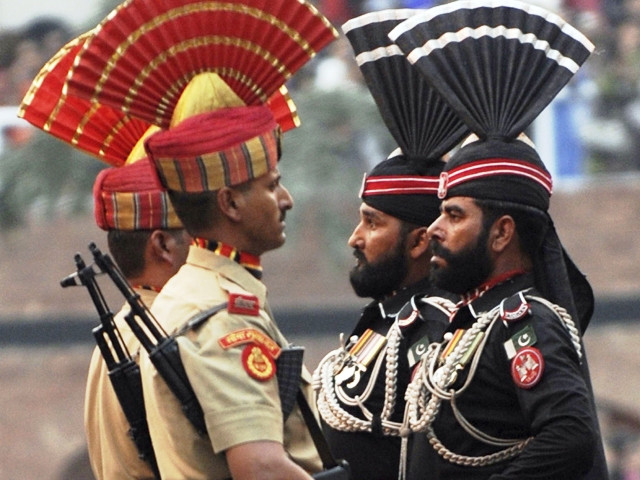Who doesn’t want peace?
The reality is that in Pakistan, it is the military which — still — calls the shots on policies related to India.

He further said that neither Pakistan nor India stood to gain anything from the stand-off on the world’s highest battle-ground; rather it pandered to the respective egos of the two states, while it is possible that the conflict would cost both sides dearly in terms of their peoples’ welfare. He also said something that “cut both ways” in his typically nonchalant impartial manner: “India wants to talk on the Sir Creek issue first, we want to talk about Siachen first — the same issue of egos”.
The following day, the minister, who now holds the portfolio of the ministry of water and power, denied that he had said anything of the sort, saying that he had been misquoted. Even if that were the case, the fact is that the reason that issues such as Siachen or Sir Creek are left unresolved, or that the recent planned visa agreement between the two countries is now in limbo, is because powerful vested interests on both sides do not want permanent peace. These may be institutions or elements in certain institutions with significant backing from like-minded individuals/groups.
The reality, whether one admits it or not, is that in Pakistan, it is the military which — still — calls the shots on policies related to India. Even the case of the issue of Most-Favoured Nation status, which is an important development and should help strengthen bilateral ties is being prolonged, because the military establishment is on board. The implication in this context also is that it will be the military who will decide what is to be done with Siachen. Of course, one should also be reminded of the situation in India where the reality is more or less the same, with the Indian Army often saying that it will never withdraw from Siachen on its own. Reports in the Indian media indicate that Prime Minister Dr Manmohan Singh is keen to have this and other issues resolved but that a hawkish civil-military establishment, led presumably by some of his own advisers, is resisting this and wants to make an example of Pakistan, especially following the Mumbai attacks of 2008.
The truth, regardless of what Mr Mukhtar actually said, is that the armies of India and Pakistan are in the way. The Indian point of view is that the two sides should sign off on the present positions and then redeploy, which means “climb down from the high mountain peaks”. Pakistan favours climbing down without signing off because any document on positions would legitimise India’s deployment on Siachen. On both sides, the armies are dictating terms but there are differences of approach that must be pointed out.
The Indian government is under pressure from public opinion which is quite strongly anti-Pakistan. Indian public opinion is negative because of the terrorist activity of the Pakistani non-state actors inside India. We could dismiss it as state propaganda which has seeped into the public mind, but the truth is that the entire world is of the same opinion. In Pakistan, things are different. Credit is due to PML-N chief Nawaz Sharif for saying that the Pakistan Army should withdraw from Siachen unilaterally. Sections of the mainstream media here reacted with disapproval over Mr Sharif’s ‘unilateral’ suggestion after the army chief negated it.
The real issue is who bleeds more? Pakistan certainly, because of its faltering economy, which is much smaller compared to India’s and which is growing at a much slower rate as well. We know that we have to make the move, not so much for the honour of the military top brass as for the well-being of ordinary Pakistanis.
Published in The Express Tribune, June 5th, 2012.














COMMENTS
Comments are moderated and generally will be posted if they are on-topic and not abusive.
For more information, please see our Comments FAQ